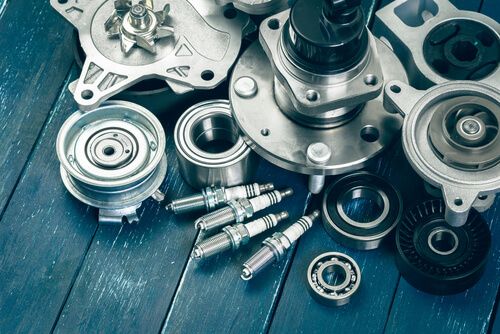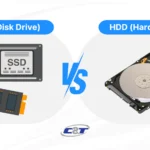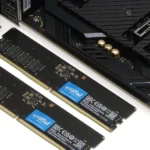When it comes to maintaining your vehicle, regular maintenance is crucial to keep it running smoothly for years to come. From engine care to tire maintenance, every part of your car plays a significant role in its performance, efficiency, and longevity. This guide will walk you through essential automobile parts that require attention and maintenance, providing practical tips to ensure your vehicle remains reliable and road-ready for as long as possible.
Introduction
Maintaining your vehicle properly is one of the best ways to ensure that it serves you well over the years. Without a doubt, one of the biggest investments you’ll make in your life is your automobile. It’s not only a tool that takes you from place to place but also a part of your lifestyle, offering convenience and reliability. Unfortunately, many vehicle owners neglect regular maintenance, which can result in premature wear and costly repairs.
This guide will help you understand the importance of maintaining essential automobile parts, including your engine, tires, brake system, transmission, and more. Whether you’re a new car owner or an experienced driver, these maintenance tips will help you take care of your vehicle and extend its life.
Understanding Your Vehicle’s Parts
Your vehicle is composed of hundreds of interconnected parts, each contributing to its performance, safety, and comfort. To keep your car running in top condition, it’s important to understand how these parts work and how to take care of them.
The engine, brakes, tires, battery, and suspension system are some of the critical components that require regular attention. By taking proper care of these essential automobile parts, you can ensure that your car operates at peak performance, maintains safety, and prevents expensive repairs down the road.
Why Regular Maintenance is Essential for Your Car
Just like any machine, your car requires regular upkeep to remain in optimal condition. Regular maintenance not only helps prevent breakdowns but also ensures that your car runs efficiently, saving you money on fuel and repairs. Neglecting maintenance can lead to a range of problems, including engine failure, tire blowouts, or even safety hazards on the road.
The Importance of Early Detection
Routine maintenance allows you to detect issues early, before they escalate into major problems. For example, a small oil leak might seem like a minor issue, but if left unattended, it could lead to a major engine problem. Preventive maintenance helps identify small problems before they grow into more expensive repairs, saving you money and preventing inconvenience.
Reducing the Risk of Accidents
Many car accidents are caused by mechanical failure, such as faulty brakes, worn-out tires, or steering problems. Keeping your vehicle in good working order reduces the risk of accidents by ensuring that your brakes, tires, and other critical systems are functioning properly.
Enhancing Fuel Efficiency
A well-maintained vehicle is more fuel-efficient. When parts like the engine, air filters, and tires are properly cared for, your car consumes less fuel, reducing your carbon footprint and saving you money on gas.
Key Automobile Parts That Require Regular Maintenance
Maintaining your car’s essential parts is the key to extending its life. Let’s take a closer look at the parts that require your attention and the steps you can take to keep them in optimal condition.
1. Engine Maintenance
The engine is the heart of your vehicle. Without it, your car wouldn’t move. Therefore, regular maintenance of the engine is essential to ensure that it runs smoothly.
Oil Changes
One of the most important aspects of engine maintenance is regular oil changes. Engine oil lubricates the moving parts of the engine, preventing friction and reducing wear and tear. Over time, the oil becomes dirty and loses its effectiveness, leading to engine damage.
It’s important to change your oil at the recommended intervals specified by the manufacturer. Regular oil changes help keep the engine running smoothly and can prevent costly repairs in the future.
Engine Coolant
Engine coolant plays a critical role in regulating your vehicle’s engine temperature. The radiator circulates the coolant to prevent the engine from overheating. Over time, coolant can become contaminated and lose its effectiveness, leading to potential engine overheating.
To prevent this, you should flush and replace the engine coolant at regular intervals. Most manufacturers recommend a coolant flush every 30,000 to 60,000 miles, but check your vehicle’s manual for the specific requirements.
2. Brake System Maintenance
Your car’s brake system is crucial for your safety on the road. Over time, brake pads wear out, and brake fluid levels may drop, making it important to check your brakes regularly.
Brake Pads and Rotors
Worn brake pads are one of the most common issues that arise in a vehicle’s braking system. When brake pads wear down, they can damage the rotors, leading to expensive repairs. Regularly check the thickness of your brake pads and replace them when necessary.
If you notice any squealing or grinding sounds when applying the brakes, it could be a sign that your brake pads are worn and need to be replaced.
Brake Fluid
Brake fluid is essential for the functioning of your brake system. Low brake fluid levels can cause the brakes to feel soft or unresponsive, making it harder to stop your vehicle. Regularly check your brake fluid and top it off if needed. It’s also a good idea to replace the brake fluid at least every two years to ensure the brake system functions properly.
3. Tire Maintenance
Tires are the only point of contact between your vehicle and the road, so it’s essential to keep them in good condition to maintain safety and performance.
Tire Pressure
Maintaining the proper tire pressure is crucial for safe driving and optimal fuel efficiency. Under-inflated tires can reduce traction and handling, while over-inflated tires can cause uneven wear and increase the risk of a blowout.
Check your tire pressure regularly, especially before long trips or when the weather changes. Use a tire pressure gauge to ensure your tires are inflated to the recommended levels specified in your vehicle’s manual.
Tire Rotation and Alignment
Tires wear unevenly over time, especially if they are not rotated regularly. Rotating your tires helps ensure even wear, which can extend their lifespan.
In addition to rotating your tires, it’s important to check the alignment. Misaligned tires can cause uneven wear and reduce the lifespan of your tires. If you notice your car pulling to one side or if your steering wheel vibrates, it might be time for a wheel alignment.
Tread Depth
The tread on your tires provides the necessary grip for traction on the road. As the tread wears down, your tires lose their ability to grip the road, making it more difficult to stop in wet or slippery conditions. Check your tire tread regularly and replace your tires if the tread is too worn down.
4. Transmission Maintenance
The transmission is responsible for shifting gears and transferring power from the engine to the wheels. A properly functioning transmission is essential for smooth driving and fuel efficiency.
Transmission Fluid
Transmission fluid lubricates the internal components of the transmission, allowing it to shift gears smoothly. Over time, the fluid can become dirty or low, causing the transmission to slip or shift roughly.
It’s important to check your transmission fluid regularly and top it off if needed. Most vehicles require a transmission fluid change every 30,000 to 60,000 miles, but always refer to your owner’s manual for the specific recommendations.
5. Battery Maintenance
The battery powers all of your vehicle’s electrical components, including the lights, radio, and ignition system. A dead battery can leave you stranded, so it’s important to maintain your car’s battery.
Battery Terminals
Over time, corrosion can build up on your battery terminals, reducing the efficiency of the electrical system. Regularly check your battery terminals for corrosion and clean them with a mixture of baking soda and water.
Battery Replacement
Car batteries typically last between three to five years. If your battery is nearing the end of its lifespan, it’s a good idea to replace it before it fails. Keep an eye out for signs of a weak battery, such as dim headlights or difficulty starting the engine.
6. Suspension and Steering System
The suspension system ensures a smooth ride by absorbing bumps and shocks from the road. It also plays a role in your car’s handling and stability.
Shocks and Struts
Shocks and struts are essential for absorbing impacts and ensuring your car maintains stability while driving. Over time, they can wear out and cause your vehicle to bounce excessively or become difficult to control.
If you notice a bouncy or rough ride, it could be a sign that your shocks or struts need replacing. Regular inspections can help catch problems early before they become dangerous.
Steering Components
The steering system is responsible for allowing you to control your car’s direction. Regularly check the steering fluid levels and inspect the steering components for any signs of wear or damage. If you experience difficulty steering or hear strange noises while turning, it might be time to have your steering system checked.
7. Air Filters and Cabin Filters
The air filter keeps dirt and debris out of the engine, while the cabin filter ensures that the air inside the vehicle remains clean and free of pollutants.
Air Filter Maintenance
A clogged air filter can reduce engine performance and fuel efficiency. Check the air filter regularly and replace it when it appears dirty or clogged. Most vehicles need an air filter change every 12,000 to 15,000 miles.
Cabin Filter Maintenance
The cabin filter helps filter out dust, pollen, and other allergens from the air inside your vehicle. A clogged cabin filter can reduce airflow and cause your HVAC system to work harder. Replace your cabin filter according to the manufacturer’s recommendations, usually every 15,000 to 30,000 miles.
Conclusion
By staying on top of regular maintenance and taking proactive care of your vehicle, you can significantly extend its life and avoid expensive repairs. From the engine to the tires, every part of your car plays a vital role in its performance and safety.
Remember, regular inspections, timely oil changes, brake checks, and tire rotations are just a few of the many ways you can keep your car running smoothly for years to come. By following the guidelines in this ultimate maintenance guide, you’ll enjoy a reliable, safe, and efficient vehicle for many miles ahead.
Taking care of your automobile parts now can help prevent unexpected breakdowns and costly repairs, saving you both time and money. So, make maintenance a priority, and your vehicle will thank you for it!









